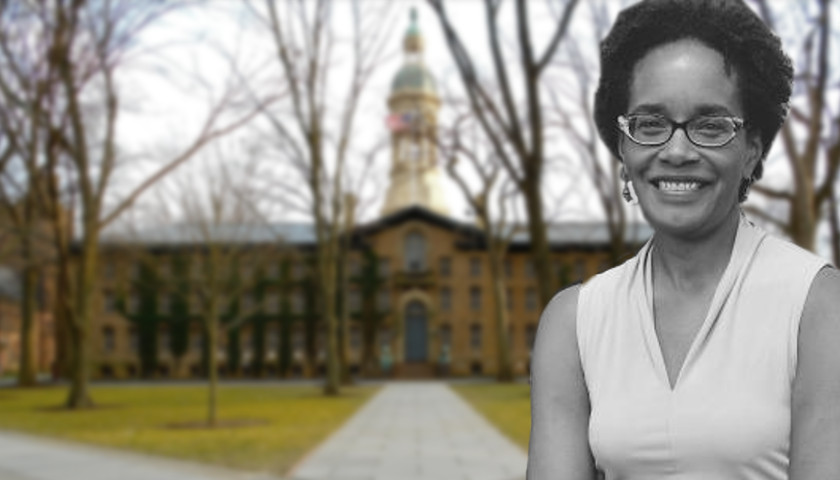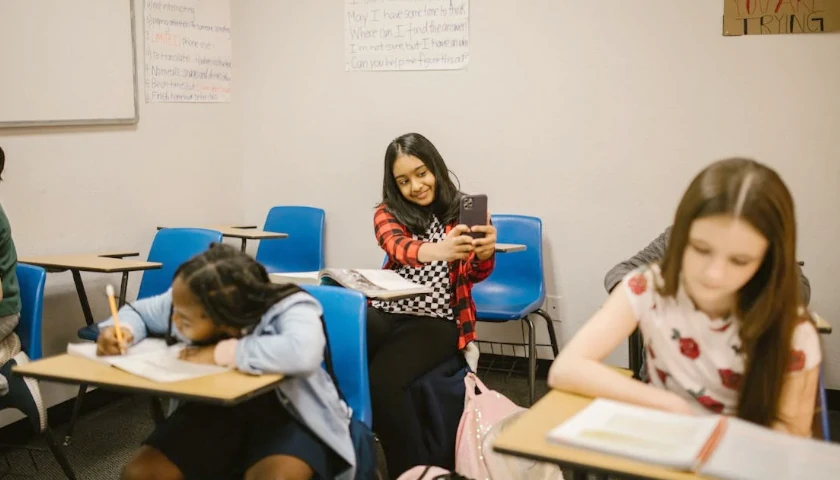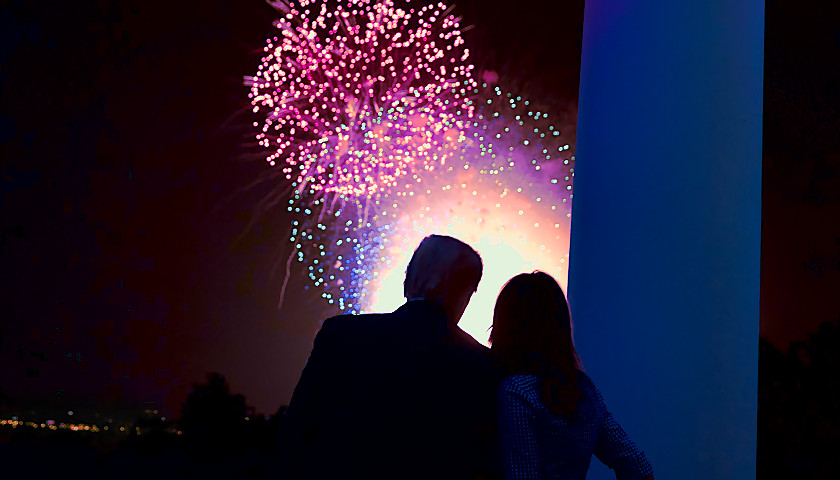Students of the fine, 271-year-old ivy league institution of Princeton University – which was originally founded as a college to train ministers, and whose early presidents include Johnathon Whitherspoon, a key figure in America’s founding from whose pulpit came some of the most persuasive sermons lauding the virtues of freedom, and who would sign the Declaration of Independence – were treated to a presentation Monday to celebrate Constitution Day.
Provocatively titled, “F%*# Free Speech,” the lecture was delivered by Professor Carolyn Rouse, who Chairs the Anthropolgy Department and is also the Director of the Program in African Studies.
Campus Reform has reported on this professor in the past for her work on a project called ‘Trumplandia,’ were Rouse asserts she will not consume any news programming whatsoever – except for the Sunday New York Times – and rely solely on what other people tell her is news.
As a part of her remarks Monday, Rouse contended that “the academy has never promoted free speech as a central value.”
Campus Reform reports:
Language is partial. It relies on context for comprehensibility, and can have implications that go far beyond simply hurting somebody’s feelings. Put simply, speech is costly.
So, contrary to the ACLU’s statement on their website regarding the role of free speech on college campuses, the academy has never promoted free speech as its central value.
The good Revered Whitherspoon may have something to say about that.
Campus Reform continued:
The central thesis of the lecture was twofold. Firstly, Rouse argued that words and grammatical constructs can have different meanings in different contexts, and that cultural competence requires knowing how to self-censor according to context, in order to avoid being misunderstood.
Thus, different “language ideologies” and styles of rhetoric develop for different contexts; for instance, “there is hate speech, therapy speech, parent-child speech, parent-infant speech, incitement speech, courtroom speech, polite speech, religious speech, academic speech, [and] ‘locker room’ speech.”
Rouse claimed that while Americans embrace free speech as a value, “free-speech absolutism doesn’t exist” genuinely, since everyone willingly self-censors for the sake of appropriateness. Moreover, she claimed that “no political side can claim [inaudible] victimhood,” saying, “the true victims when it comes to speech and suppression are the people you never hear from, because their speech is truly suppressed.”
…
The second point of her thesis, Rouse asserted that “free-speech absolutism” has never been treated as a core value of academia. She appeared to use the phrase to refer to the notion that all propositions, arguments, opinions, etc.—however absurd—are deserving of equal consideration, without reference to any peer review process or any system of credentials.
Rouse then turned her attention to so-called climate change deniers to illustrate the ‘pitfalls’ of free speech. “Though lacking a formal background in climatology, makes ‘claims about climate change, as if all the science discovered over the last X-number of centuries were irrelevant,’ asking, ‘What will take the place of secular authority if all truths are challenged by people who use ‘free speech’ as both a shield and a weapon?”
Perhaps the most shocking part of the lecture was during the questions and answer period. Campus Reform reports:
Another question, posed by a fellow of the James Madison Program in American Ideals and Institutions (JMP), asked how educators should engage with claims of metaphysical and epistemological truths “not produced” and “not contingent, but existing objectively,” such as the natural rights to “life, liberty, and the pursuit of happiness” outlined in the Declaration of Independence.
“I think in that case that you have to agree to disagree. I don’t think there’s any way that we’re going to convince each other of our views of natural rights,” Rouse responded.
“For me it seems so context-based. Culture is a wonderful thing because it makes us feel free even when we’re not actually free, right? There’s no such thing as uncoerced free will. We learn to desire the things that we’re taught from an early age, that we’re acculturated to,” she continued. “My sense is that we’re always adjusting our interpretation of that based upon our own experiences. So I don’t know, when we talk about natural rights, I’m not sure if they’re natural rights or if they’re just our illusion of natural rights because we’ve grown up believing it—because it’s our ‘common sense.’”
The lecture was hosted by the Program in American Studies and cosponsored by the Program in Law and Public Affairs, the James Madison Program, and the Department of Anthropology, with additional support from the Office of the Provost.






Ya’ll ready to fight back?, Contact me.
Why is there a “program in African Studies”? Seems like this “lady” has become drunk with her success.